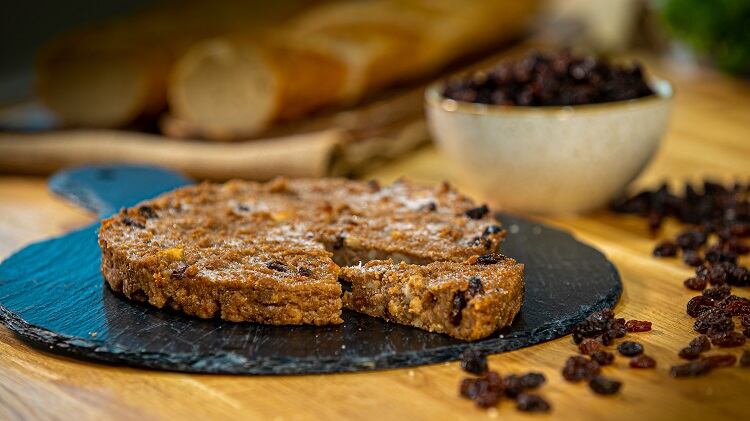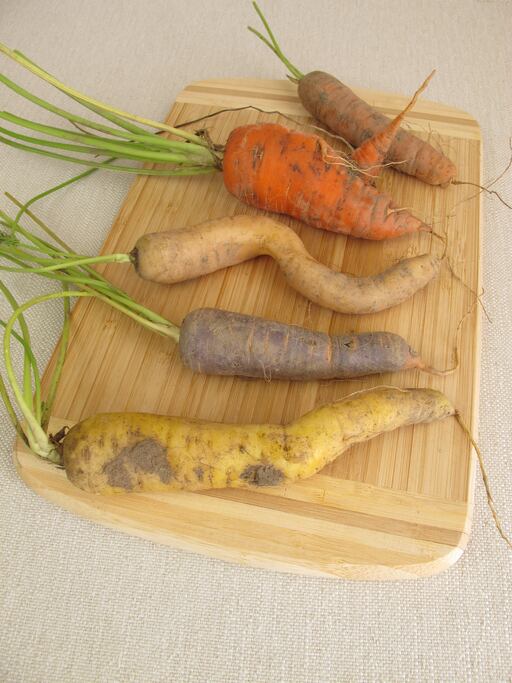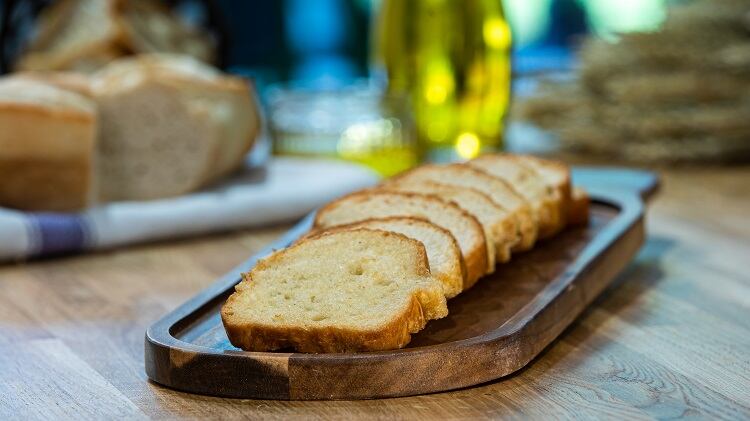Food waste is a major concern. In the UK alone, 10m tonnes of food is wasted every year, at a value of more than £20m per annum.
These lost food products, wasted in households, hospitality and food service, food manufacture, retail and wholesale sectors, are associated with more than 25m tonnes of greenhouse gas emissions.
According to sustainability experts WRAP, which calculated these 2015 estimates, surplus bread is one of the biggest waste problems facing food retailers. The food waste action charity approximated that surplus bakery products, including freshly baked lines, accounted for close to one-third – or 67,500 tonnes – of the UK’s total retail food waste.
In an effort to reduce these figures, UK supermarket retailer Tesco is upcycling surplus baguettes and batons into new bread pudding and olive oil crostini products.
“This initiative by Tesco is an excellent example of a simple solution to a common problem. Using surpluses in-store to make a delicious new product saves good food from spoiling, and reduces the cost of waste to the business,” said WRAP’s head of business collaboration, David Moon.
“Bread is also the second most wasted food in the home and every single day, as a nation, we waste one million loaves,” he added.
Tesco’s olive oil crostini (80p) is made from sliced in-store white batons, which bakers top with extra virgin olive oil and heat until crisp. The bread pudding (£1.25), made from surplus white baguette breadcrumbs, is baked with a mix of spices and sultanas. The new bakery lines will be sold across 24 Tesco stores in the UK.
The company estimates the initiative could reduce its in-store baguette and baton waste by 40%.
“We are really proud of our commitment in tackling food waste, and this is another example of our commitment to ensure that no food fit for human consumption goes to waste,” said Tesco bakery specialist Matt Delaney.
Unpacking food waste
Food waste is an issue for a myriad of reasons, including the rapidly declining capacity of landfill.
According to a new report by food waste recycler, ReFood, registered landfills have fallen from mid thousands in the 1990s to approximately 500 in the early 2000s and an estimated 120-130 in 2016. At the current rate of landfill closures, the modelled 2030 treatment mix equates to 60-100 landfills nationally by 2030.
Despite the “terminal decline” of landfill capacity, and the UK’s deterrent landfill gate fees, WRAP calculated that in 2017, 44% of food waste still ended up in landfill.
The New Food Waste Horizons report also flags rising levels of food poverty in the UK as a key driver in combatting food waste. The UK has the second highest rates of severe food insecurity in Europe, standing at approximately 4.2% of the population. The European average is 1.6%.
Other Tesco food waste initiatives include its new alcohol product Hyke, a premium gin made from surplus grapes, and a labelling scheme on bakery products that advises customers they can freeze bread to reduce food waste in the home.

The retailer is also bringing in resealable packaging on wraps and pitas to help keep these products fresher for longer.
But Tesco is far from the only food business in the UK to be pushing the anti-food waste agenda, as has been highlighted in food waste recycler ReFood’s most recent New Food Waste Horizons report.
The document profiles a number of projects undertaken as part of the Courtauld Commitment – a WRAP-led voluntary agreement working to reduce food waste in the grocery supply chain. The agreement involves approximately 50 retailers, brands and suppliers.
Its most recent commitment aims to reduce food and drink waste in the UK by 20% by 2025. This would see each individual’s food waste drop per capita from 156kg to 125kg.
Businesses tap wonky veg
According to ReFood, there is an increasing acceptance of so-called ‘wonky vegetables’ to be used, rather than discarded. As much as 25% of produce is wasted for some crops, according to its report, because they fail to meet standards set for appearance.
A number of retailers have introduced discounted veg boxes to sell the misshapen fruit and vegetables. Whole crop purchase (WCP) contracts between retailers and growers can also help minimise waste. Misshapen vegetables can be used in soup or as diced goods, for example.
“Such contracts have already allowed the supermarket chain Morrisons to sell 100% British produce in season, make use of 20% more of a potato crop, and control its supply chain more effectively,” according to ReFood.
A number of Courtauld 2025 signatories are working on similar schemes with carrots and parsnips.
Another common food waste issue, according to the publication, is strawberries lost either because they are misshapen, or suffering from pest or disease-related damage. “One way that growers can manage this is through improved growing systems, however the costs can be a barrier.”
Asda, its sourcing arm International Procurement Logistics (IPL), and The Co-op are working together on a demonstration project that aims to increase utilisation of primary produce. The objective is to provide growers make better informed decisions about their businesses’ future, while reducing food waste.

Improved crop forecasting
Crop forecasting, and the better matching of supply with demand, is another way that food waste can be reduced early on in the supply chain.
Another Courtauld 2025 initiative, undertaken by IPL with help from Agrimetrics and the National Institute of Agricultural Botany (NIAB), is helping growers use a new yield forecasting tool. Farmers upload photos of their crops throughout the season to smart phones, for software to assess the crop’s potential by linking images to local weather stations and historical data.
A yield report is then sent to IPL, and Asda, as well as to the growers themselves, to help them make more accurate decisions earlier in the season. Better forecasting can help to reduce produce shortages at both farm and retail level. Growers can also use the data to improve management of the crop for future seasons to increase yield.
Forecasting, planning and delivery have also been on the agenda for fresh produce company MyFresh, its grower Len Wright Salads, and customers Pizza Hut and The Co-op. These players are working collaboratively to improve communications around these elements to reduce primary production waste.
Optimising waste prevention and recovery
The Food & Drink Federation (FDF) is also doing its part in the fight against food waste. In 2016, the trade group established food donation guidelines to help facilitate the donation of food surpluses from food manufacturers and retailers to food banks.
FDF has been instrumental in drawing attention to the UK’s landfill capacity issue, and had encouraged its members stop sending all food and packaging waste to landfill by 2015.
Survey results published in 2015 revealed that FDF members reduced the amount sent to landfill to ‘effectively zero’. Per the findings, around 96.6% of the total food processed was sold as intended, and 1% was diverted to animal feed or redistributed to people. 2.4% underwent some form of waste treatment. “Between the first survey year in 2006 and 2015, it is estimated that FDF members diverted approximately 800,000 tonnes of food and packaging waste from landfill,” according to ReFood’s report.
FDF, which is also a signatory of the Courtauld Commitment, plans to use what it learnt from this survey to help others achieve the 2025 waste target.
“FDF and its members have long been an integral part of our work to reduce the environmental impact of food and drink through their involvement in the Courtauld Commitment, and we are delighted that they achieved their goal of zero food and packaging waste to landfill by 2015,” said WRAP’s Moon.
“This impressive achievement has taken a lot of hard work by members and shows what can be achieved by working together.”


